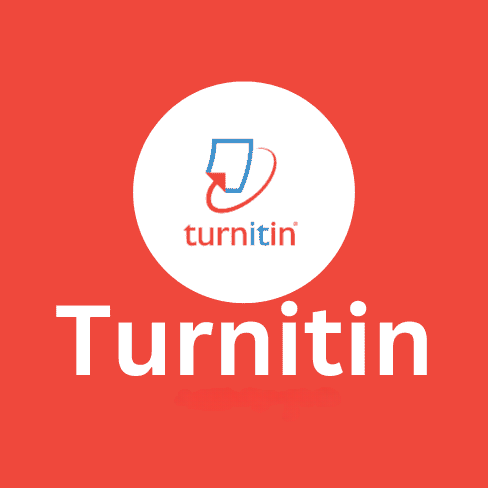EFEKTIVITAS TERAPI KOGNITIF PERILAKUAN RELIGIUS UNTUK MENURUNKAN DEPRESI PADA REMAJA
DOI:
https://doi.org/10.22373/psikoislamedia.v2i1.1823Keywords:
adolescents, depression, and religious cognitive behavior therapy.Abstract
The study examined the effectiveness of religious cognitive behavioral therapy to reduce adolescents depression. This study used apretest-posttest control group design. Participants in this study were 12 high school students in Sleman, female, aged 15-16 years and divided into two groups. One group (n = 6) as an experimental group who received treatment in the form of religious cognitive behavioral therapy. One other group (n = 6) as controlled group (waiting list). The scale used in this study was Beck Depression Inventory-II. The results of hypothesis test using non-parametric analyzes such as Mann Whitney U Test to examined the difference in value based on the group, namely the experimental and control. This suggests that there are significant differences in the implementation of post test between the experimental and control group.By using mann whitney, the result concluded that religious cognitive behavioral therapywas significantly effective toto reduce adolescents depression (Z = -2.898, p = 0.004, where p <0.05).References
Azwar, S. (2004). Metode Penelitian. Yogyakarta: Pustaka Pelajar.
Beck, A.T. (1985). Depression causes and Treatment. Philadelpia: University of Pensylvania Press.
Beck, A.T., Steer, R.A., & Brown, G. K. (1996). BDI-II, Beck Depression Inventory: Manual (2th ed). Boston: Harcour, Brace, and Company.
Depkes. (2014). Stop Stigma Dan Diskriminasi Terhadap Orang Dengan Gangguan Jiwa (ODGJ). (online). : http://www.depkes.go.id/article/view/201410270011/stop-stigma-dan-diskriminasi-terhadap-orang-dengan-gangguan-jiwa-odgj.html#sthash.wE3qQkbY.dpuf. (diakses 29 Desember 2016).
Fitri, S. (2011). Mengenali dan Menangani Depresi Pada Siswa: Rambu-Rambu Bagi Konselor di Sekolah. Makalah disajikan dalam seminar Internasional dan pelatihan dengan teman Contemporary and Creative Counseling Techniques: How to Improve Your Counseling Skills To Be More Creative In Counselling Sessions. Universitas Pendidikan Indonesia, Bandung, 29-30 Oktober, 2011.
Fritz, G. (1995). Child, Adolescent Depression Distinct From The Adult Version. The Brown University Child And Adolescent Behavior Letter, 11.
Ginting, H., Naringa, N., Van der Velda, W. M., & Beckera, E.S. (2013). Validating the Beck Depression Inventory-II in Indonesia’s General Population And Coronary Heart Disease Patients. International Journal of Clinial and Health Psychology, 13, 235-342.
Greenberg, L. S & Stone, A. A. (1992). Emotional disclosure about trauma and its relation to health: Effect of previous disclosure and trauma severity. Journal of Personality and Social Psychology.63 (1):75-84.
Irawati, D., Subandi, Kumolohadi, R. (2011). Terapi Kognitif Perilaku Religius Untuk Menurunkan Kecemasan Terhadap Kematian Pada penderita HIV/AIDS. Jurnal Intervensi Psikologi, 3 (2), 169-186.
Ismail, R. I., & Siste, K. (2010). Gangguan Depresi, Buku Ajar Psikiatri. Jakarta: Fakultas Kedokteran Universitas Indonesia.
Kaplan, H.I., Sadock, B.J., and Grebb, J.A., (2010). Sinopsis Psikiatri : Ilmu Pengetahuan Perilaku Psikiatri Klinis. Jilid Dua.Editor : Dr. I. Made Wiguna S. Jakarta : Bina Rupa Aksara.
Kasberger, E. R. (2002). A Correlation Study of Post-divorce and Religious Coping Strategies in Young Adult of Divorced Families. Second Annual. Undergraduate Research Symposium CHARIS Institute of Wisconsin Lutheran College. Milwaukee, WI 53226. April 27 and 28 2002.
Lubis, N.L. (2009). Depresi Tinjauan Psikologis. Jakarta: Kencana Prenada Media Grup.
Mellianawati. (2014). Penerapan CBT pada Penderita Fobia Spesifik. Jurnal Ilmiah Mahasiswa Universitas Surabaya, 3 (1), 1-12.
Mirza, R., Sulistyaningsih, W. (2013). Cognitive Behavior Therapy Untuk Meningkatkan Regulasi Emosi Pada Anak Korban Konflik Aceh. Psikologia, 8 (2), 59-72.
Mutia, E, Subandi, Mulyati, R. (2010). Terapi Kognitif Perilaku Bersyukur Untuk Menurunkan Depresi Pada Remaja. Jurnal Intervensi Psikologi. 2 (1), 53-68.
Nindita, T. (2012). Efektivitas Penerapan Cognitive Behavior Therapy pada Anak dengan Masalah Pengelolaan Rasa marah. Tesis Program Studi Magister Psikologi Profesi Klinis Anak. Depok: tidak diterbitkan.
Ramadhani, A., Renowati, S. (2013). Depresi pada Remaja Korban Bullying. Jurnal Psikologi. 9 (2), 73-79.
Rey, J.(2002). More Than Just The Blues: Understanding Serious Teenagers Problems. New South Wales: Simon & Schuster.
Rosenvald, T., Oei, T.PS.,Schmidt, M. (2007). Fight Your Dark Shadow: Managing Depression with Cognitive Behavior Therapy.(I. Saraswati, trans). Brisbane: Depression Managed.
Santrock, J. W. (2003). Adolescence Perkembangan Remaja (terjemahan: Shinto B. A. & Sherly S). Jakarta: Penerbit Erlangga.
Sarafino, E. P. & Smith, T. W. (2011). Health psychology biopsychosocial interaction. 7th edition. New York: John Wiley & Sons, Inc.
Siswanto. (2007). Kesehatan Mental: Konsep, Cakupan dan Perkembangannya. Yogyakarta: Andi Offset.
Subandi, M.A. (1988). Hubungan antara tingkat Religiusitas dan Kecemasan pada Remaja. Laporan Penelitian. Yogyakarta: Fakultas Psikologi Universitas Gadjah Mada.
Subandi. (2002). Psikoterapi. Yogyakarta: Pustaka Pelajar.
Sujarweni, W. (2015). SPSS Untuk Penelitian. Yogyakarta: Pustaka Baru Press.
Taylor, S.E. (1995). Health Psychology, Third Edition. Singapore: McGraw Hill, Inc.
Trimulyaningsih, N., Subandi, M.A. (2010). Terapi Kognitif-Perilakuan Religius untuk Menurunkan Gejala Depresi. Jurnal Intervensi Psikologi. 2 (2), 205-227.
WHO. (2011). Top 10 Causes of Death. (Online). http://www.who.int/mediacentre/factsheets/fs310/en/. (diakses pada 12 Agustus 2016).
Yuliza, E. (2012). Efektivitas Terapi Kognitif Perilakuan Religius (Islam) Untuk Menurunkan Depresi Pada Mahasiswa. Tesis, tidak diterbitkan, Fakultas Psikologi dan Ilmu Sosial Budaya Universitas Islam Indonesia, Yogyakarta.
Downloads
Published
Issue
Section
License
Authors who publish in this Journal agree to the following terms:
- Authors retain copyright and grant the journal right of first publication with the work simultaneously licensed under Attribution-ShareAlike 4.0 International (CC BY-SA 4.0) allows others to share the work with an acknowledgment of the work's authorship and initial publication in this journal.
- Authors are able to enter into separate, additional contractual arrangements for the non-exclusive distribution of the journal's published version of the work (e.g., post it to an institutional repository or publish it in a book), with an acknowledgment of its initial publication in this journal.
- Authors are permitted and encouraged to post their work online (e.g., in institutional repositories or on their website) prior to and during the submission process, as it can lead to productive exchanges, as well as earlier and greater citation of published work. (See The Effect of Open Acces)













